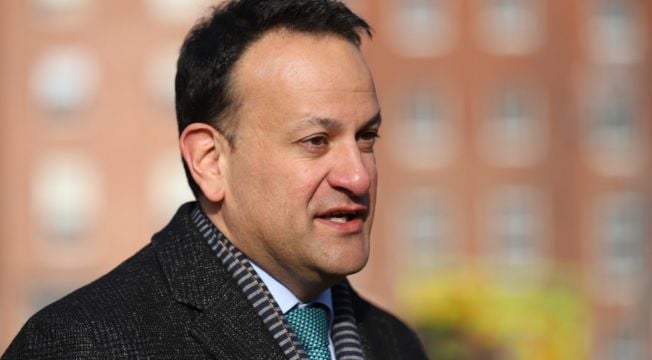The Tánaiste has said the Government remains committed to ratifying the Comprehensive Economic and Trade Agreement, after the Supreme Court ruled on Friday that the proposed ratification of the deal is unconstitutional as Irish law currently stands.
In a press statement issued after the ruling, Leo Varadkar said that it was "disappointing" that the ratification of EU-Canada trade deal is now not immediately possible.
"The Government remains committed to ratifying the CETA agreement in full," Mr Varadkar said.
"It will now take some time to reflect on the wider decision and consider its implications.
"Our initial assessment is that a referendum is not required and that ratification can follow once some changes are made to domestic law," he added.
Dara Calleary, Minister of State for Trade Promotion, said that Goverment will "reflect" on the ruling and "consider the next steps on how best to proceed and to reassure our Canadian partners that Ireland remains very much an advocate for free, fair and open trade".
The Ireland Canada Business Association (ICBA) said they welcomed the Supreme Court decision, given that the ruling stated ratification would be possible under Irish law once amendments to the Arbitration Act 2010 are enacted.
The ICBA called on Government to "honour" their commitment to ratifying the "historic" trade deal.
"CETA has been in operation for just over five years and it has already fuelled a more than 30% rise in the value of goods trade between Ireland and Canada," Chris Collenette, chair of ICBA, said.
"This trade agreement has delivered jobs, economic growth, and an even stronger relationship with Canada, a trusted and like-minded partner. Relationships like these are exactly what Ireland needs during uncertain economic and political times," Mr Collenette added.
On Friday, seven Supreme Court judges issued individual judgements in the case, with many diverging findings regarding elements of the appeal brought by Green Party TD Patrick Costello.

It will set aside the order of the High Court, which had dismissed Mr Costello’s case against the Government of Ireland, Ireland and the Attorney General.
A four-to-three majority of judges held that the Constitution precludes ratification of Ceta as Irish law now stands.
The court was told during the March hearing that “sovereignty” was at the heart of the appeal, with the Dublin South Central TD expressing concerns about the constitutionality of provisions in Ceta for “investor courts” to decide complaints by Canadians who invest in EU member states.
Ceta is primarily a trade treaty designed to reduce tariffs and increase trade between the EU and Canada. It came into force provisionally in 2017, but all national parliaments in EU countries need to ratify the deal before it can take full effect.







